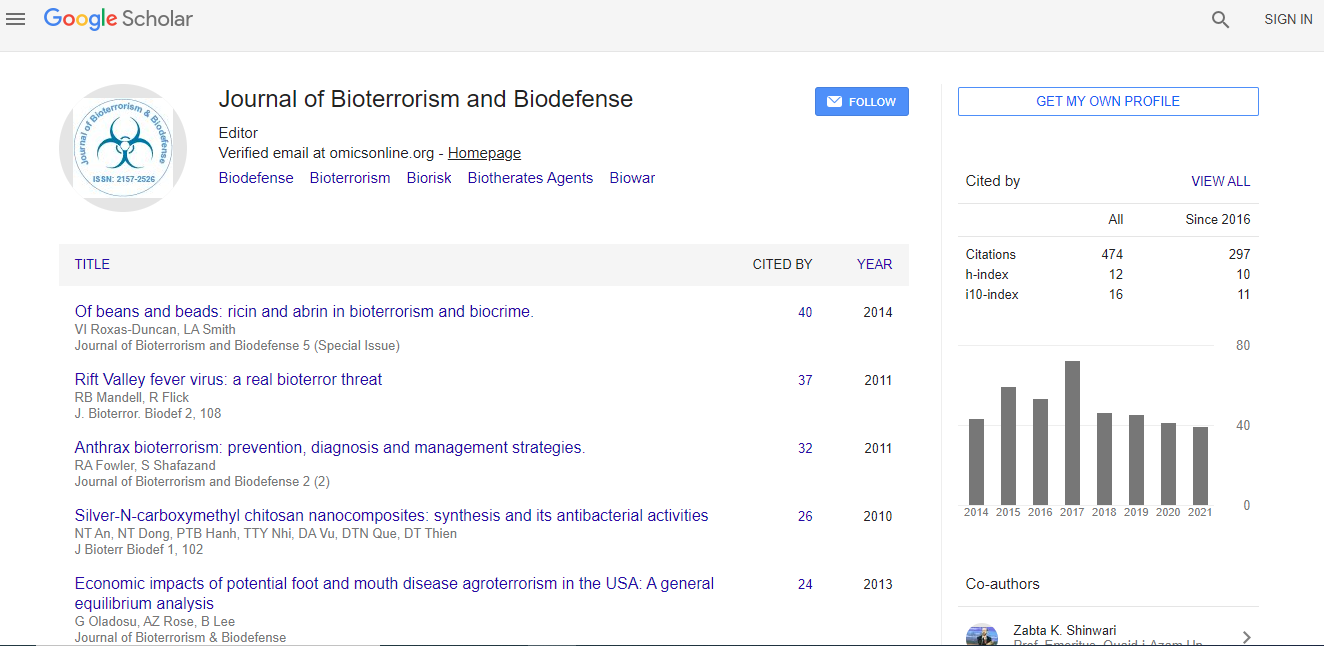Review Article
Threats of Agricultural Bioterrorism to an Agro Dependent Economy; What Should be Done?
Ali Talha Khalil* and Zabta Khan Shinwari
Molecular Systematics and Ethno botany Lab. Department of Biotechnology, Quaid I Az University, Pakistan
- *Corresponding Author:
- Ali Talha Khalil
Molecular Systematics and Ethno botany Lab
Department of Biotechnology
Quaid I Azam University, Pakistan
Tel: 0092-051-90644129, 0332-9247627
E-mail: Talhakhalil.qau@gmail.com
Received Date: March 7, 2014; Accepted Date: May 30, 2014; Published Date: June 2, 2014
Citation: Khalil AT, Shinwari ZK (2014) Threats of Agricultural Bioterrorism to an Agro Dependent Economy; What Should be Done?. J Bioterror Biodef 5:127. doi:10.4127/2157-2526.1000127
Copyright: © 2014. Khalil AT, et al. This is an open-access article distributed under the terms of the Creative Commons Attribution License, which permits unrestricted use, distribution, and reproduction in any medium, provided the original author and source are credited.
Abstract
The economy of Pakistan is primarily dependent on its agricultural resources. Due to the lack of research regarding threat analysis of germ warfare in Pakistan, it is imperative for the agriculturists to understand the potential hazards associated with an attack on the cash crops that contributes heavily to the overall Gross Domestic Product (GDP) growth. Alarming terrorist activities such as 9/11 and many innovative terrorist strategies like Improved Explosive Devices (IED) in different countries, especially in Pakistan, has increased the potential of bioterrorism. Hence there is urgent need of security risk analysis and preparedness. State of the art research labs are not important for the effective production of biological weapons but certainly innovative strategies are required to effectively implement and counter a bioterrorist plan. Bioweapon infection to some staple crops such as wheat and maize can induce a significant loss that can take years to diffuse. This paper is concerned with the vulnerability of certain important crops in Pakistan that can be exposed as soft targets to certain bioterrorists and discusses the preemptive measures that should be undertaken immediately to prevent any sort of nefarious act of bioterrorism.

